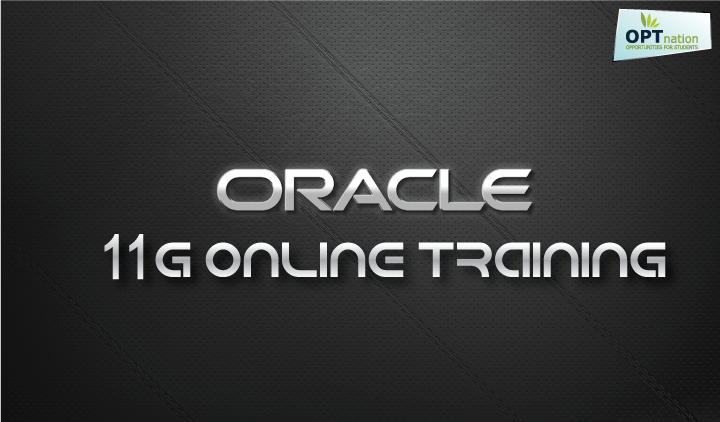Oracle 11g is an object relational database management system. It handles a large amount of data and offers great flexibility, keeps information secured, efficient data storage, and managing capabilities; it stores large amount of objects in database. It was released in year 2009. It has more features than Oracle 8i, 9i, and 10g. It produces real applications. It allows you to know if any issue/s arises in the software application. It performs the best in the file system.
Oracle 11g can handle two types of objects which were not handled by previous versions like 10g: CLOB’s (classified large objects) and BLOB’s (binary large objects). Thus, it offers great flexibility and compatibility with space reduction, security and well performance.
❯ Oracle database environment
- Basic architecture
- Overview of 10g
- Features of 9i
- Features of 10g
- Creating users
- Managing users
- Backups
❯ Fundamentals
- Concepts of DBMS
- Concepts of RDBM
- Define object
- Define object model
- Versions of Oracle
- 8i
- 9i
- 10g
- 11g
- Features of Oracle
- 8i
- 9i
- 10g
- 11g
❯ SQL
- Define SQL
- Roles of SQL in RDBMS
- Sub-languages in SQL
- Data types of Oracle
❯ Basic SQL*PLUS commands
- Using script files:
- START
- @
- SAVE
- GET
- PROMPT
- LIST
- DEFINE
- SPOOL
- ACCEPT
- PAUSE
❯ DDL (data definition language) commands
- Create
- Modify
- Alter-add
- Drop
- Drop column
❯ Data integrity constraints
- Key constraints
- Domain constraints
- Referral integrity constraints
- Constructing data integrity constraints
- Implementation of data integrity
❯ DML commands
- Insert
- Statement
- Oracle operators
- Update and delete statements
- Select
- Examples
- Special operators
❯ Data joining
- Define join
- Types of joins
- Cartesian join
- Equi and non-equi join
- Outer join
- Left outer join
- Right outer join
- Full outer join
❯ Sub queries
- Simple sub query
- Complex sub query
- Correlated sub query
❯ Operators
- Arithmetic operators
- Relational operators
- Logical operators
- Relational negation operators
- Set operators
❯ Database objects
- Indexes
- Definition of index
- Types
- Unique index
- Non-unique index
- Function-based index
- Bit-map index
- Views
- What are views
- Types
- Forced views
- In-line views
- Synonyms
- Types of synonyms
- Private synonym
- Public synonym
- Security
- Types of synonyms
- Clusters
- What are clusters
- Types of clusters
- Use of clusters
- Sequence
- Using various clauses
- Pseudo columns
- Data deletion
- Types of data deletion
- Simple
- Critical
- Using sub-query concept
- Types of data deletion
- Data updation
- Table updation
- Multi-column updates
- Transaction control language
❯ Oracle functions
❯ Categories
- Group or aggregate functions
- Scalar or single row functions
❯ Types of functions
- Numeric functions
- String functions
❯ Miscellaneous
- Object references
- Defer
- Value
- Ref
- Analytical functions
Oracle 11g Online Training Placement in Various Cities:
- Oracle 11g Training Jobs Opportunities in Chicago
- Oracle 11g Training Jobs Opportunities in Charlotte
- Oracle 11g Training Jobs Opportunities in Phoenix
- Oracle 11g Training Jobs Opportunities in New York
- Oracle 11g Training Jobs Opportunities in Houston
- Oracle 11g Training Jobs Opportunities in Virginia
- Oracle 11g Training Jobs Opportunities in Atlanta

